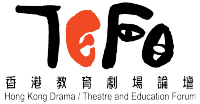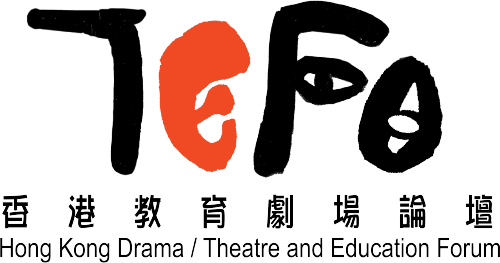Tag: Language Education
A Multi-case Study of Chinese Language Classrooms with Drama as Pedagogy: A Dialogic Perspective
This multiple ethnographic case studies aims to investigate the critical literacy which emerged and emanated in the Chinese classrooms using drama as pedagogy. Drawing on the perspectives of Critical theories, Bakhtin Mikhail’s dialogism, and also the literatures on critical literacy, this study argues that there is disparity of statuses of languages, knowledges, cultures and peoples within the Chinese language classrooms.
Motivation and Second Language Learning: How Stanislavski’s System Motivates Learning as a Motivational Teaching Practice in Chinese Narrative Writing as a Second Language (Chinese) | DaTEAsia Vol. 9
This paper examines how drama works as a motivational teaching practice and how it enhances students’ learning motivation. Data is collected from eight students, an observer and the teacher-as researcher through action-based research. All sorts of research data sets are triangulated for enhancing the reliability of the study. Interviews of the participants and researcher’s reflective journals are analysed according to the Motivated Strategies for learning (Pintrich et al., 1991) and the Model of Motivational teaching practice (Dörnyei, 2001). The findings show that drama is an effective motivational teaching practice of Chinese narrative writing as a second language for non-Chinese speaking students, and at the same time it also increases students’ learning motivation in terms of self-efficacy, extrinsic goal orientation, intrinsic goal orientation, task value and diminishes learning anxiety.
The Integration of Drama Education in the Subject of Modern Greek Language in Greek Primary Education|DaTEAsia Vol. 8
The use of dramatic conventions for educational purposes has a long history. However, in the Greek educational system it is only during the last decade that a clear-cut effort has been actually made to incorporate dramatic methods into the teaching of various subjects and in particular into the subject of language. The present study examines ways and approaches of incorporating dramatic methods into the subject of language in the elementary education in Greece.
The Use of Drama Pedagogy in Teaching Chinese Landscape Poetry(Chinese)|DaTEAsia Vol. 8
Today, the younger generation in mainland China is losing interest in studying classical Chinese, especially classical Chinese poetry. This article is trying to explore the possibility of introducing classical Chinese poetry through educational drama, an approach different from the mainstream pedagogy used in most Chinese schools. By analysing a particular drama lesson series, this article discusses the meaning and practicability of the drama pedagogy.
Students’ Perceptions of Collaborative Playwriting Projects Undertaken at a High School in Japan|DaTEAsia Vol. 8
This paper explores the activity of collaborative playwriting for theatre performance as a mode of language learning within a task-based framework. It describes a quasi-experimental study in which a pair of similar but distinct playwriting theatre tasks was implemented in a first-year English oral communication course at a senior high school in Japan. This paper briefly discusses the background, rationale and design of the playwriting tasks. It then reviews relevant data obtained from post-task student feedback questionnaires. Despite the evident lack of theatrical experience amongst the student participants, their feedback was markedly positive. In addition, a number of students reported improvements in various areas of their language abilities. They also recognised the opportunities for learning that both the devising process and the performance outcomes afforded them.
Drama as Pedagogy for English Language Education in Neoliberalist Hong Kong: Reflections from Students’ Learning English Through Drama|DaTEAsia Vol. 8
The authors have observed from related literature and their own front-line English teaching experiences that neoliberalism is posing adverse effects on English language Education (ELE), affecting English teaching and learning at the classroom level in Hong Kong. To address the adverse neoliberalist influence on ELE, this paper examines the relations between drama pedagogy and ELE in Hong Kong. It discusses findings from students’ experiences with learning English through drama as delivered by their teachers who experienced the drama pedagogy for the first time through an in-service teacher development programme organised by Hong Kong Arts School (HKAS, 2016). The discussion is informed by the Freirean notion of critical pedagogy and drama as “relational pedagogy”. At the end of the paper, the authors reflect on the possibilities of a dialogical and humanising approach to ELE for drama practitioners, English teachers and educators in Hong Kong.
Japanese Students Re-engaging in English through Dramatised Digital Storytelling|DaTEAsia Vol. 8
Through the deconstruction of a collaboratively constructed srudent-devised dramatised digital story, this article examines how a group of Japanese university students engaged in their English language learning in a meaningful and creative way. The digital story was an outcome of a three-week intensive elective that drew on process drama and digital storytelling to foster and develop srudents' applications of English language. The article provides the contextual background and the authors' research of the intensive course. Later, a detailed description of the digital story with analysis through a multimodal framework will be discussed thoroughly.
Drama as Pedagogy for English Language Education in Neoliberalist Hong Kong: Reflections from Students’ Learning English Through Drama|Vol. 8
The authors have observed from related literature and their own front-line English teaching experiences that neoliberalism is posing adverse effects on English language Education (ELE), affecting English teaching and learning at the classroom level in Hong Kong. To address the adverse neoliberalist influence on ELE, this paper examines the relations between drama pedagogy and ELE in Hong Kong. It discusses findings from students’ experiences with learning English through drama as delivered by their teachers who experienced the drama pedagogy for the first time through an in-service teacher development programme organised by Hong Kong Arts School (HKAS, 2016). The discussion is informed by the Freirean notion of critical pedagogy and drama as “relational pedagogy”. At the end of the paper, the authors reflect on the possibilities of a dialogical and humanising approach to ELE for drama practitioners, English teachers and educators in Hong Kong.
A Refective Case Study On Efective English Speaking Through Process Drama|DaTEAsia Vol. 7
Based on a single case study of a workshop adapted from the novel The Moon and Sixpence, this article explores the application of process drama in one English-as-a-Second-Language (ESL) class in a Chinese university. It is to examine the impact of drama on efective English speaking within the research context. The author reviews writings on socio-semiotic constructivism pertaining to drama and language acquisition, and writings that promote process drama as an alternative option for ESL classrooms.
Constructing Knowledge Together: A Reflective Practitioner Case Study on the Use of Ensemble Pedagogy to Shakespearean Text in a Y8 Drama Class | DaTEAsia Vol. 5
Most research on the teaching of Shakespeare in school settings has focused on how active approaches can foster learners’ motivation and confidence. While this point is essential, the value of collaboration among learners remains a relatively neglected area of study despite its significance in determining the quality of the learning process. This article explores how ensemble-based learning can enable the process of knowledge construction through collaborative work among learners. In doing so, I designed and facilitated six drama lessons exploring Shakespeare’s Macbeth in a Y8 drama class in England as my pilot study. Adopting Vygotskian socio-cultural approaches to the development of knowledge and Jonothan Neelands’ principles of ensemble, the study draws on analysis of qualitative data. Overall, the preliminary findings suggest evidence to support the conclusions of previous studies that ensemble-based learning can (1) generate an “open space” which fosters an inclusive environment through mutual trust and collaboration among learners; (2) bring learners to the centre of collaborative sense making with teacher serving as a facilitator to support autonomous learning; and (3) create a stimulating dialogue through collaborative work and creative exploration.
Theatre Production as a Language Learning Environment for Chinese Students|DaTEAsia Vol. 2
Research has shown that theatre can be used as a tool for English as a second language (ESL) learning in various contexts. However, ESL studies done in Hong Kong have shown that sociocultural factors impact on language learning. I argue that this implies that sociocultural factors could also have a significant impact on language learning in the context of the process of rehearsal for a theatre production. This paper reports the results of a pilot study on Chinese tertiary students involved in preparing a theatre production. Adopting a Vygotskian sociocultural perspective, the study draws on analysis of qualitative data. It aims to answer two research questions: (1) What sociocultural factors shape the experience of English theatre productions in Hong Kong as a language learning environment?; and (2) Are theatre productions good language learning environments in Hong Kong? The results revealed that prior to production, students’ sociocultural background were similar to what other studies have already concluded. This sociocultural background has had an impact on the learning environment in that students were predisposed to explicit instruction in the environment as learning outcomes of the experience. These indicate that theatre productions provided students with multiple learning opportunities, which makes it an appropriate language learning environment.





